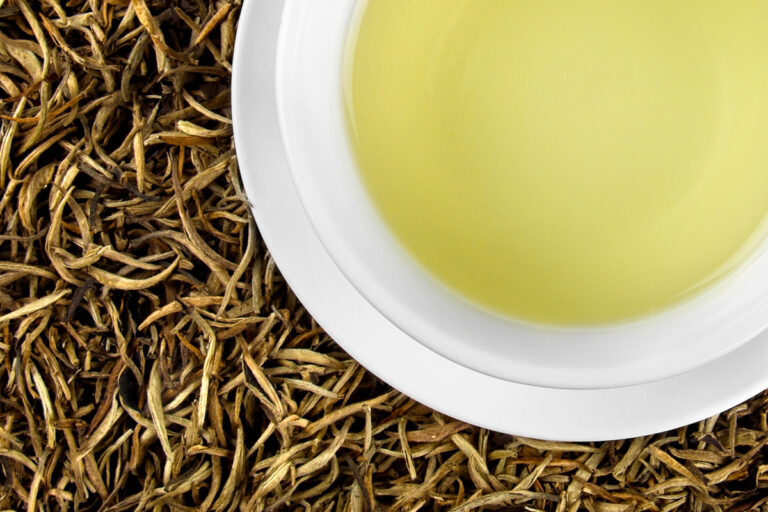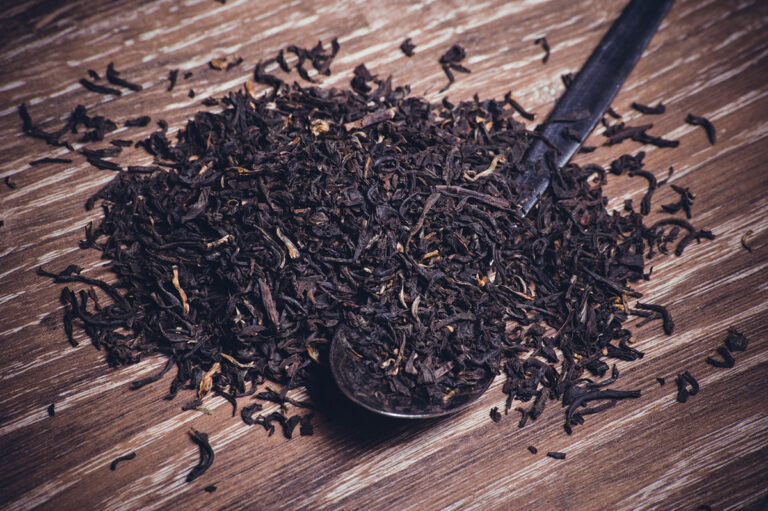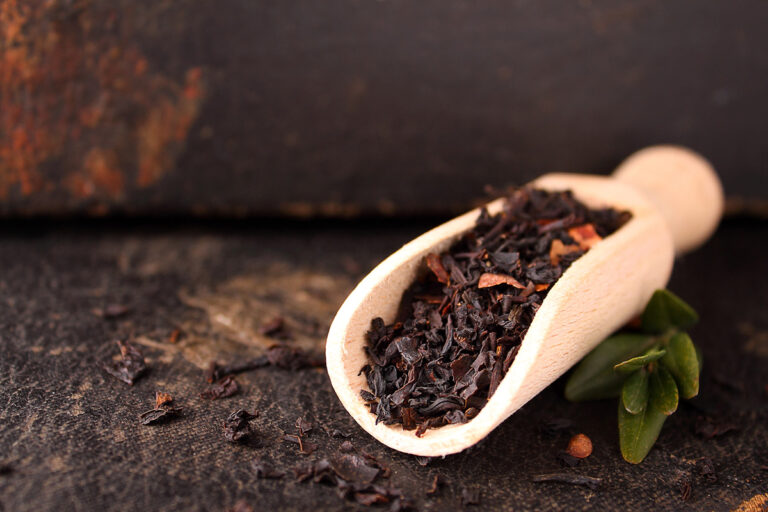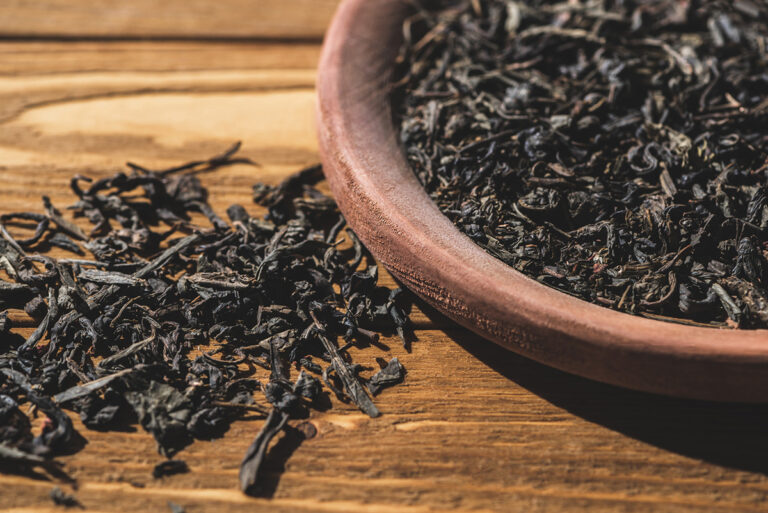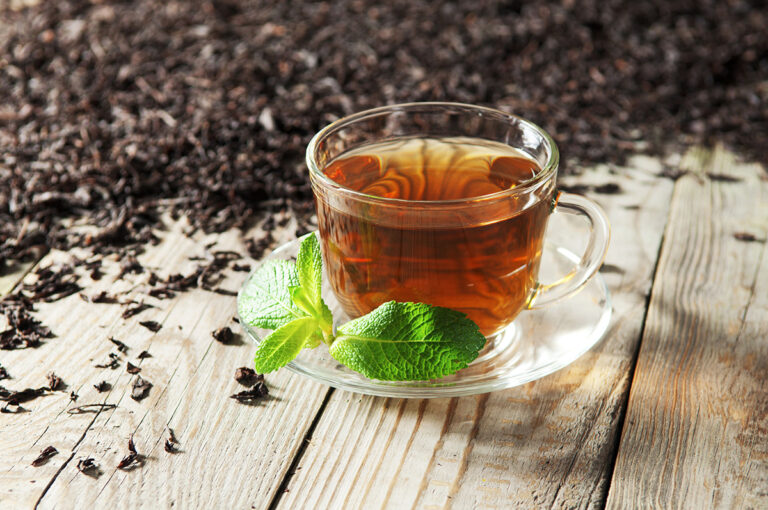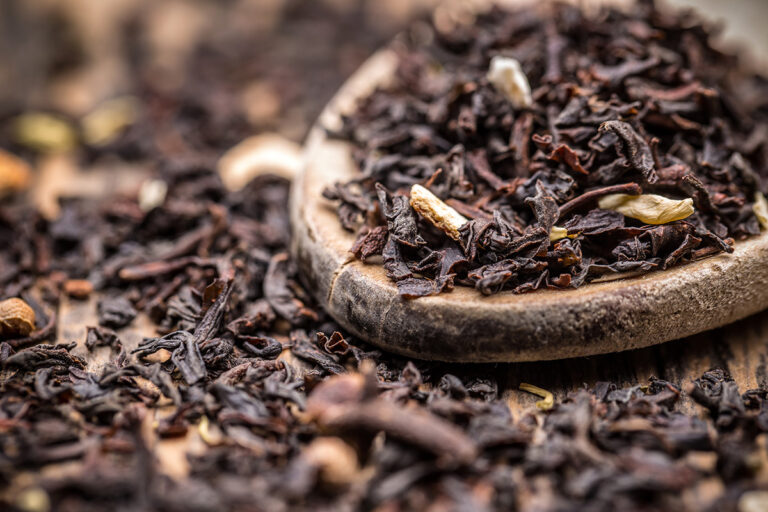White Tea vs. Black Tea: What’s the Difference?
The world of tea is vast and diverse, offering countless flavors, aromas, and health benefits.
Among the many types of tea, white and black teas are two of the most popular and widely consumed. Despite their shared origin from the Camellia sinensis plant, they differ significantly in terms of taste, processing methods, and potential health benefits.
In this article, we will explore the differences between white and black tea, including their caffeine content and health benefits.
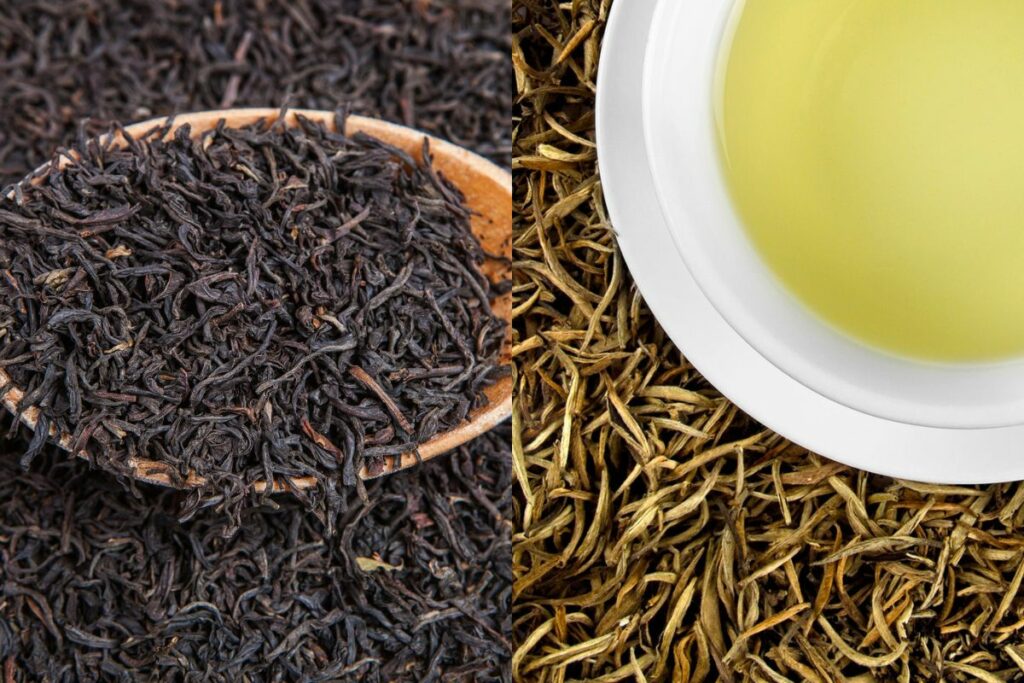
Processing
The most notable difference between white and black tea lies in their processing methods. Understanding these methods can help you better appreciate the unique characteristics of each tea.
White Tea Processing
White tea is the least processed of all tea types. After the tea leaves are harvested, they are allowed to wither in natural sunlight. This process allows for minimal oxidation, which results in a delicate flavor and a light, refreshing aroma. Once the leaves have withered, they are dried to halt any further oxidation.
Black Tea Processing
Black tea undergoes a more extensive processing method. The leaves are first withered, then rolled to bruise the leaves and release their natural enzymes. This bruising initiates oxidation, which transforms the tea’s color, flavor, and aroma. The leaves are then left to fully oxidize, turning them a dark brown or black color. Finally, the oxidized leaves are dried to stop the oxidation process.
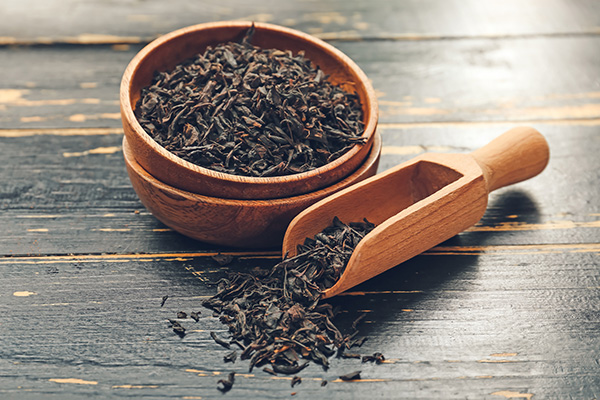
Taste and Aroma
The differences in processing methods result in distinct taste and aroma profiles for white and black tea.
White Tea Taste and Aroma
White tea is renowned for its delicate, subtle flavor, and light, refreshing aroma. The taste is often described as sweet and floral, with a hint of fruitiness. Because of its minimal processing, white tea retains many of its natural flavors and characteristics, making it a favorite among tea connoisseurs.
Black Tea Taste and Aroma
Black tea offers a more robust and full-bodied flavor compared to white tea. It has a strong, malty taste and can be sweet, floral, or even slightly astringent, depending on the specific tea variety. The aroma of black tea is typically rich and bold, with hints of fruit or spice.
White Tea vs. Black Tea Caffeine
Caffeine content is often a deciding factor for tea drinkers when choosing between white and black tea. There is a notable difference in caffeine content between the two tea types.
Caffeine in White Tea
White tea generally has the lowest caffeine content among all types of tea. On average, an 8-ounce cup of white tea contains 15-30 milligrams of caffeine, depending on the specific variety and steeping time.
Caffeine in Black Tea
Black tea contains significantly more caffeine than white tea. An 8-ounce cup of black tea typically contains 40-70 milligrams of caffeine, again depending on the variety and steeping time.
Health Benefits
Both white and black teas offer various health benefits, largely due to their antioxidant content. However, the specific benefits and antioxidant levels differ between the two tea types.
Health Benefits of White Tea
White tea is packed with antioxidants, particularly catechins, which have been linked to numerous health benefits. Some potential benefits of white tea include:
- Enhanced immune function
- Improved cardiovascular health
- Reduced risk of certain cancers
- Support for weight loss and healthy metabolism
- Protection against neurodegenerative diseases
Health Benefits of Black Tea
Black tea also contains antioxidants, though in different forms than those found in white tea. Theaflavins and thearubigins are the primary antioxidants in black tea, which offer their own unique health benefits. Some potential benefits of black tea include:
- Improved cardiovascular health
- Support for healthy digestion
- Enhanced mental alertness and cognitive function
- Strengthened immune system
- Reduced risk of certain cancers
Teeth-Staining Ability of White Tea vs. Black Tea
Black tea typically has a higher teeth-staining ability than white tea because it contains more tannins and pigments that can discolor teeth. White tea, being the least processed tea, has the lowest tannin content and is least likely to stain teeth.
Choosing the Right Tea for You
When deciding between white and black tea, there are several factors to consider. These include:
- Taste preference: If you prefer a delicate, subtle flavor, white tea may be the right choice for you. On the other hand, if you enjoy a robust, full-bodied taste, black tea might be more appealing.
- Caffeine sensitivity: For those who are sensitive to caffeine or want a low-caffeine option, white tea is an ideal choice. Black tea, with its higher caffeine content, may be a better option for those seeking an energy boost.
- Health benefits: While both teas offer numerous health benefits, the specific benefits and antioxidant levels differ. Consider your personal health goals and preferences when choosing between the two.
If you decide to choose black tea, here are the finest ones we have sampled.
If you choose white tea instead, here are some good options you may want to consider.
Final Thoughts
In the debate of white tea vs. black tea, it’s clear that both types offer unique flavors, aromas, and health benefits.
The fundamental difference between white and black tea lies in their processing methods, which result in distinct taste profiles and caffeine contents.
Ultimately, the choice between the two comes down to personal preferences and individual health goals. By understanding the differences between white and black tea, you can make an informed decision and enjoy the many benefits that tea has to offer.

